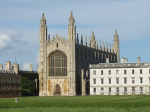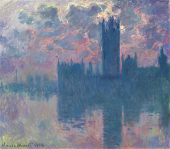
The latest figures from the Office of Rail and Road have unveiled that the United Kingdom's most recent railway addition, the Elizabeth Line, has experienced a higher rate of
cancellations compared to other train services. These statistics, spanning the four weeks leading up to August 19th, disclosed that 9.1% of Elizabeth Line services were canceled during this period, with CrossCountry coming in second at 7.5%.
Overall, train cancellations across all services increased from 3.3% in the preceding four weeks to 3.9%. Furthermore, recent data has indicated that nearly half of all trains arrived at their destinations at least one minute behind schedule.
Transport for London (TfL) has issued an apology for the series of recent challenges plaguing the Elizabeth Line. This setback comes just months after the line, connecting Reading and Essex via central London, celebrated its full opening in May.
TfL has projected that, during peak hours, up to 24 trains per hour will run between Paddington and Whitechapel. However, commuters have voiced their dissatisfaction with frequent disruptions and cancellations.
Howard Smith, the Director of the Elizabeth Line, acknowledged the line's popularity and previously strong reliability but also addressed the recent difficulties, which included issues with Network Rail's signaling systems and infrastructure in the western section, as well as problems with a maintenance train.
Smith stated, "We continue to collaborate with all parties involved in the Elizabeth Line to ensure a safe and dependable railway. This includes our partners, such as Network Rail, and a series of upgrades provided by the train manufacturer, Alstom, to enhance the reliability of our train fleet."
When considering P-coded cancellations across England, Wales, and Scotland, the overall percentage of canceled trains increased to 4.6%, up from the previous period's 3.7%. P-coded cancellations involve services being canceled up to 22:00 BST the night before, effectively removing them from the overnight timetable and omitting them from on-the-day cancellation statistics.
Northern Trains, under the government's Operator of Last Resort, experienced the highest number of P-coded cancellations, primarily due to train crew shortages. In the latest period, they recorded 2,064 such cancellations, with 56 cases involving partial journey cancellations. Photo by Alex6nt, Wikimedia commons.



































